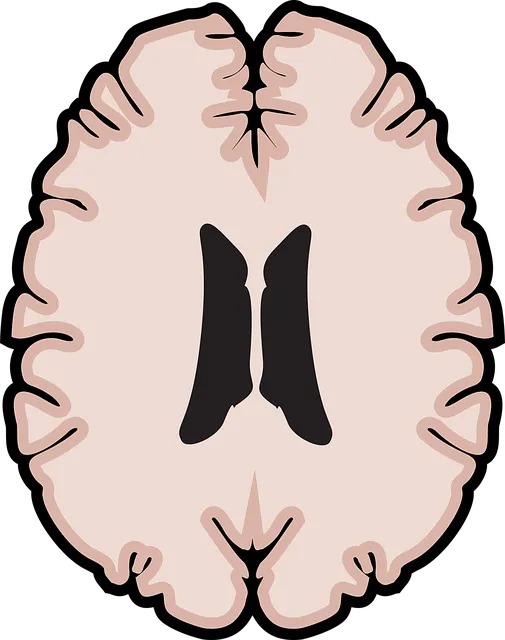The Westminster Kaiser Permanente mental health center by owner offers a unique, holistic approach to mental well-being, focusing on building resilience through the RFM framework (Resourcefulness, Flexibility, Mastery). Their evidence-based programs integrate practices like Compassion Cultivation and Conflict Resolution for stress management and anxiety relief. They provide tailored interventions with cultural sensitivity, comprehensive training, and data-driven continuous improvement, ensuring effective mental health care for the diverse community they serve.
Resilience is a crucial asset in navigating life’s challenges, making it an essential focus for mental health initiatives. The Westminster Kaiser Permanente (WKP) Mental Health Center has pioneered an innovative approach using RFM (Recovery, Flexibility, and Mastery) exercises to build resilience among its clients. This article explores the impact of this method, delving into the center’s strategy, key training components, and a practical guide to implementation. Learn from WKP’s success as we uncover how these exercises foster adaptability and mental fortitude.
- Understanding RFM and Its Role in Resilience Building
- The Westminster Kaiser Permanente Mental Health Center Approach
- Key Components of Effective Resilience Training Programs
- Implementing RFM Exercises: A Step-by-Step Guide
- Measuring Success and Continuous Improvement at WPKP
Understanding RFM and Its Role in Resilience Building

At Westminster Kaiser Permanente mental health center by owner, we recognize that building resilience is paramount for overall well-being and mental health. Resilient individuals are better equipped to cope with life’s challenges, adapt to change, and recover from adversity. This is where RFM (Resourcefulness, Flexibility, and Mastery) steps in as a powerful framework. Drawing on scientific research, RFM exercises empower individuals to cultivate these three key aspects, ultimately fostering mental fortitude.
By integrating RFM into our practice, we aim to go beyond traditional therapy models that primarily focus on addressing symptoms. We believe in equipping our clients with practical tools and strategies to navigate life’s complexities, prevent burnout, and enhance their ability to manage stress. Cultural sensitivity in mental healthcare practice is at the core of our approach, ensuring that RFM interventions are tailored to individual needs while respecting diverse backgrounds and perspectives, promoting effective stress management for all.
The Westminster Kaiser Permanente Mental Health Center Approach

The Westminster Kaiser Permanente Mental Health Center has pioneered an innovative approach to resilience building and stress management, focusing on holistic well-being. By owning and understanding the unique needs of their community, the center has developed comprehensive programs aimed at enhancing mental health and overall resilience. Their strategy incorporates a range of evidence-based practices, such as Compassion Cultivation Practices and Conflict Resolution Techniques, tailored to address common challenges faced by individuals in today’s fast-paced world.
This approach prioritizes an individual’s journey towards self-discovery and personal growth. Through various workshops and therapeutic sessions, the center equips participants with effective tools for managing anxiety relief, fostering positive relationships, and resolving conflicts constructively. By integrating these practices into daily life, individuals can build mental resilience, enabling them to navigate life’s complexities with greater ease and adaptability.
Key Components of Effective Resilience Training Programs

Resilience training programs designed by experts like those at the Westminster Kaiser Permanente mental health center by owner, focus on several key components to ensure effectiveness. Firstly, Inner Strength Development is paramount; these exercises aim to cultivate a deep sense of personal resilience and self-efficacy. Through various techniques such as mindfulness meditation, cognitive reframing, and positive psychology interventions, participants learn to confront challenges with a growth mindset.
Secondly, Public Awareness Campaigns Development plays a crucial role in fostering a supportive community environment. These campaigns educate the public about mental health, breaking down stigma and promoting understanding. Coupled with tailored Mental Wellness Coaching Programs Development, individuals gain practical tools for managing stress, improving communication, and building strong interpersonal connections, all vital elements in enhancing overall resilience and well-being.
Implementing RFM Exercises: A Step-by-Step Guide

Implementing RFM (Resilience, Flexibility, and Mastery) exercises at the Westminster Kaiser Permanente mental health center by owner involves a structured approach to enhance the well-being and effectiveness of mental health professionals. Here’s a step-by-step guide for seamless integration:
1. Risk Assessment: Begin with a comprehensive risk assessment tailored to your center’s unique context, considering factors such as work stress, caseloads, and client populations. This step is crucial in identifying potential triggers and vulnerabilities among staff members. The Risk Assessment for Mental Health Professionals serves as a valuable tool for gauging individual and collective resilience.
2. Educate and Train: Equip your team with the knowledge and skills needed to navigate challenging situations. Offer workshops and training sessions focused on emotional regulation techniques, helping professionals learn to manage their own stress and maintain composure under pressure. Additionally, teach communication strategies that foster open dialogue, empathy, and effective problem-solving among colleagues.
3. Develop a Customized RFM Program: Create an RFM curriculum aligned with the center’s goals and staff needs. This program should include exercises that promote flexibility in thinking and problem-solving, encourage adaptive behaviors, and build mastery over personal and professional challenges. Regularly review and update this program to address emerging issues.
4. Implement and Monitor: Seamlessly integrate RFM exercises into daily operations, group meetings, or dedicated wellness sessions. Encourage participants to share experiences and learnings openly. Actively monitor the program’s effectiveness through regular feedback from staff and observations of their interactions with clients. This ensures continuous improvement and refinement.
Measuring Success and Continuous Improvement at WPKP

At Westminster Kaiser Permanente (WKPP) mental health center by owner, measuring success and fostering continuous improvement are core pillars of their resilience building exercises implementation. They employ a multi-faceted approach, combining quantitative metrics with qualitative feedback from participants to gauge the impact of their programs. This includes tracking key performance indicators (KPIs) such as patient engagement levels, satisfaction rates, and improvements in mental health outcomes over time.
Through their Community Outreach Program Implementation, WKPP integrates Compassion Cultivation Practices and Crisis Intervention Guidance into their resilience building exercises. By regularly reviewing these metrics and the insights gathered from participant feedback, they ensure that their programs remain relevant and effective. This data-driven approach allows them to continuously refine and enhance their mental health services, ultimately providing better care for their community.
The implementation of RFM (Resilience, Flexibility, and Mastery) exercises, as demonstrated by the success at the Westminster Kaiser Permanente Mental Health Center, offers a powerful approach to building resilience. By integrating these strategies into mental health programs, individuals can develop the tools needed to navigate life’s challenges. This step-by-step guide ensures that anyone can replicate this effective method, fostering resilience and enhancing overall well-being, as evidenced by the continuous improvement seen at WKPPMHC by its dedicated owner.


